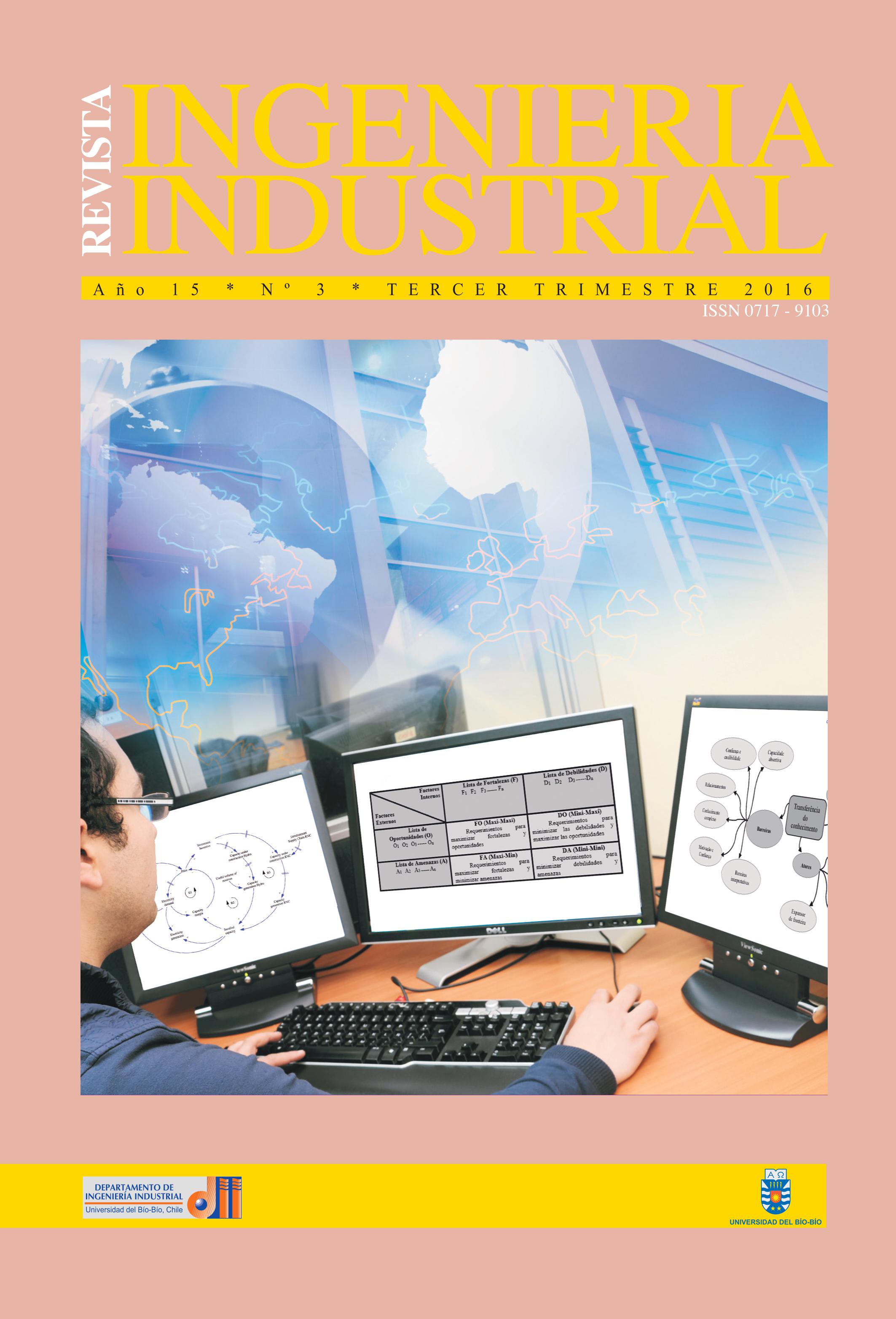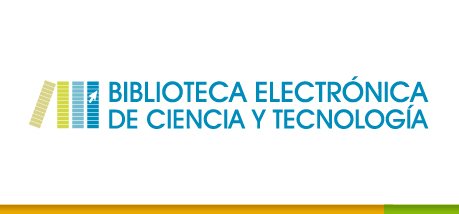Análisis del impacto de los instrumentos de política de producto integrada en la fase de fin de vida de luminarias
Palabras clave:
Análisis del ciclo de vida, modelos de optimización, programación lineal, dinámica de sistemasResumen
El análisis ciclo de vida de las luminarias en Bogotá, a partir del uso de Dinámica de Sistemas (DS), permite identificar el comportamiento del sistema de luminarias en términos de las relaciones de causalidad presentes en las fases que lo componen, así mismo las políticas de producto integrado (PPI) contribuyen a la disminución de la cantidad de material enviado al relleno sanitario, el consumo de energía y al aumento del material reciclado que es reincorporado al proceso productivo. Con el fin de medir el impacto de dos de las PPI propuestas, se plantea un modelo de Programación entera mixta que permite minimizar la cantidad de material que es enviado al relleno sanitario y el consumo de energía observando el comportamiento y el alcance de las mismas para los periodos de simulación. Al observar en conjunto los resultados de la simulación por DS y el modelo de optimización se evidencia que este tipo de trabajo conjunto entre simulación y optimización, proporciona escenarios complementarios que compensa las limitaciones de cada una de las herramientas. Para este caso en particular se logra un escenario óptimo con un 98% de mejora en términos de material reciclado que es reincorporado al proceso productivo y un 99% de disminución en el consumo de energía.
Descargas
Citas
AZAPAGIC, A. y CLIFT, R. The application of life cycle assessment to process
optimisation. Computers & Chemical Engineering [online]. 1999, 23(10), 1509-1526 [cit. 2015-07-14]. DOI: 10.1016/S0098-1354(99)00308-7. ISSN 00981354. Disponible en: http://linkinghub.elsevier.com/retrieve/pii/S0098135499003087
CALCOTT, P. y WALLS, M. Waste, recycling, and design for environment: Roles for markets and policy instruments. Resource and energy economics, 2002, 27(4), pp.287-305.
CARRERAS, J., BOER, D., GUILLÉN-GOSÁLBEZ, G., CABEZA, L.F., MEDRANO, M. y
JIMÉNEZ, L. Multi-objective optimization of thermal modelled cubicles considering the total cost and life cycle environmental impact. Energy and Buildings [online]. 2015, 88, 335-346 [cit. 2015-07-14]. DOI: 10.1016/j.enbuild.2014.12.007. ISSN 03787788. Disponible en: http://linkinghub.elsevier.com/retrieve/pii/S0378778814010585
Comisión de las Comunidades Europeas. Libro Verde Sobre Políticas de Productos integrada, vol. 2001–68. Bruselas: Comisión de las Comunidades Europeas, 2001, p. 34.
Comisión Europea. Consumo y Producción sostenibles, más inteligente y más limpio [En línea]. 2010. [Consulta: 2014.05.22]. Disponible en: <http://ec.europa.eu/environment/eussd/pdf/brochure_scp/kg006508ES_2.pdf.>
ČUČEK, L., KLEMEŠ, J. y KRAVANJA, Z. Accessing Direct and Indirect Effects within a LCA Based Multiobjective Synthesis of Bioproducts Supply Chains [online]. 2012, [cit. 2014-07-14]. DOI: 10.1016/B978-0-444-59506-5.50044-4. Disponible en: http://linkinghub.elsevier.com/retrieve/pii/B9780444595065500444
DEHGHANIAN, F. y MANSOUR, S. Designing sustainable recovery network of end-oflife products using genetic algorithm. Resources, Conservation and Recycling [online]. 2009, 53(10), 559-570 [cit. 2015-05-14]. DOI: 10.1016/j.resconrec.2009.04.007. ISSN 09213449. Disponible en: http://linkinghub.elsevier.com/retrieve/pii/S0921344909000664
Eichner, T. y Runkel, M. Efficient policies for green design in a vintage durable good model. Environmental and Resource Economics, 2005, 30(3), 259-278
Elshkaki, E.V. Dynamic stock modelling: Amethod for the identification and estimation of future waste streams and emissions based on past production and product stock characteristics. Energy, 2005, pp.1353–1363
European Lamp Companies Federation. Did you know … … the potential energy savings of an energy efficient lamp? Energy. [En línea]. 2015. [Consulta: 2014.05.22]. Disponible en: <http://www.elcfed.org/documents/050301 DYK the potential of energy savings of an energy efficient lamp.pdf>
GAN, S.S., PUJAWAN, I.N., SUPARNO, S y WIDODO, B. Pricing decision model for new and remanufactured short-life cycle products with time-dependent demand. Operations Research Perspectives [online]. 2015, 2, 1-12 [cit. 2015-07-14]. DOI: 10.1016/j.orp.2014.11.001. ISSN 22147160. Disponible en: http://linkinghub.elsevier.com/retrieve/pii/S2214716014000104
Georgiadis P., A. E. The impact of two-product joint lifecycles on capacity planning of remanufacturing networks. European Journal of Operational Research, 2010, pp. 420–433.
Georgiadis, P. M. Environmental and economical sustainability of WEEE closed-loop supply chains with recycling: a system dynamics analysis. The International Journal of Advanced Manufacturing Technology, 2009, pp. 475–493.
Gottberg, A., Morris, J., Pollard, S., Mark-Herbert , C. y Cook, M. Producer responsibility, waste minimisation and the WEEE Directive: case studies in eco-design from the European lighting sector. The Science of the Total Environment, 2006, 359(1-3), pp. 38–56.
Khetriwal , D., Kraeuchi, P. y Schwaninger , M.A comparison of electronic waste
recycling in Switzerland and in India. Environmental Impact Assessment Review, 2005, 25(5), pp. 492-504.
KHETRIWAL D., KRÄUCHI P., WIDMER R. Producer responsibility for e-waste management: key issues for consideration – learning from the Swiss experience, Journal of Environmental Management, 2009, 90, pp. 153-165.
Khoshnevisan, B., Bolandnazar, E., Shamshirband, S., Shariati , H. M.,
Anuar, N.B. y Mat Kiah, M. L. Decreasing environmental impacts of cropping systems using life cycle assessment (LCA) and multi-objective genetic algorithm. Journal of Cleaner Production[online]. 2015,86, 67-77 [cit. 2015-07-14]. DOI: 10.1016/j.jclepro.2014.08.062. ISSN 09596526. Disponible en: http://linkinghub.elsevier.com/retrieve/pii/S0959652614008853
KOMLY, C.E., Azzaro-Pantel, C., HUBERT, A., PIBOULEAU, L. y ARCHAMBAULT, V.
Multiobjective waste management optimization strategy coupling life cycle assessment and genetic algorithms: Application to PET bottles. Resources, Conservation and Recycling [online]. 2012, 69, 66-81 [cit. 2015-07-14]. DOI: 10.1016/j.resconrec.2012.08.008. ISSN 09213449. Disponible en: http://linkinghub.elsevier.com/retrieve/pii/S0921344912001462
KOSTIN, A., MELE, F. y GUILLÉN-GOZÁLBEZ, G. Multi-objective optimization of integrated bioethanol-sugar supply chains considering different LCA metrics simultaneously [online]. 2011. [cit. 2017-07-14]. DOI: 10.1016/B978-0-444-54298-4.50034-9. Disponible en: http://linkinghub.elsevier.com/retrieve/pii/B9780444542984500349
LEE, T.K. Resource Cyclical Dynamics of Electric and Electronic Equipment Waste. [En línea]. 2005. [Consulta: 2014.05.22]. Disponible en: <http://www.systemdynamics.org/conferences/2005/proceed/papers/LEE493.pdf
LEVIS, J.W., BARLAZ, M., DECAROLIS, J. y RANJITHAN, S.R. A generalized multistage
optimization modeling framework for life cycle assessment-based integrated solid waste management. Environmental Modelling & Software [online]. 2013, 50, 51-65 [cit. 2015-07-14]. DOI: 10.1016/j.envsoft.2013.08.007. ISSN 13648152. Disponible en: http://linkinghub.elsevier.com/retrieve/pii/S1364815213001850
Lindhqvist, T., Manomaivibool, P. y Tojo, N. La responsabilidad extendida del
productor en el contexto latinoamericano. [En línea]. 2008. [Consulta: 2015.09.23]. Disponible en: http://www.basuracero.org/sitio/admin/archivos/la-responsabilidad-extendida-d.pdf.
LIU, Z., QIU, T. y CHEN, B. A LCA Based Biofuel Supply Chain Analysis Framework. Chinese Journal of Chemical Engineering [online]. 2014a, 22(6), 669-681 [cit. 2015-09-20]. DOI: 10.1016/S1004-9541(14)60079-3. ISSN 10049541. Disponible en: http://linkinghub.elsevier.com/retrieve/pii/S1004954114600793
Liu, Z., Qiu, T. y Chen, B. A study of the LCA based biofuel supply chain multi-objective optimization model with multi-conversion paths in China. Applied Energy[online]. 2014b, 126, 221-234 [cit. 2015-09-15]. DOI: 10.1016/j.apenergy.2014.04.001. ISSN 03062619. Disponible
en: http://linkinghub.elsevier.com/retrieve/pii/S030626191400333X
Morales Mendoza, L.F., Boix, M., Azzaro-Pantel, C., Montastruc , L. y Domenech, S. Biodiesel Production from Waste Vegetable Oils: Combining Process Modelling, Multiobjective Optimization and Life Cycle Assessment (LCA) [online]. 2014, [cit.
2015-08-10]. DOI: 10.1016/B978-0-444-63456-6.50040-5. Disponible en: http://linkinghub.elsevier.com/retrieve/pii/B9780444634566500405
Ogata , K. Dinamica de Sistemas, Mexico: Prentice Hall Hispanoamerica S.A. 1987. ISBN 968-880-074-0.
Paraskevas , D., Kellens, K., Dewulf, W. y Duflou, J. R. Environmental modelling of
aluminium recycling: a Life Cycle Assessment tool for sustainable metal management. Journal of Cleaner Production [online]. 2015, 105, 357-370 [cit. 2015-08-10]. DOI: 10.1016/j.jclepro.2014.09.102. ISSN 09596526. Disponible en: http://linkinghub.elsevier.com/retrieve/pii/S0959652614010646
Poulikidou, S., Schneider, C., Björklund, a., Kazemahvazi , S., Wennhage, P. y
Zenkert , D.A A material selection approach to evaluate material substitution for minimizing the life cycle environmental impact of vehicles. Materials & Design [online]. 2015, 83, 704-712 [cit. 2015-08-10]. DOI: 10.1016/j.matdes.2015.06.079. ISSN 02641275. Disponible en: http://linkinghub.elsevier.com/retrieve/pii/S0264127515004293
Ramadhan, N.J., Wan, Y.K., Ng, R.T.L., Ng, D.K.S., Hassim, M.H., Aviso, K.B. y Tan,
R.R. Life cycle optimisation (LCO) of product systems with consideration of occupational fatalities. Process Safety and Environmental Protection [online]. 2014, 92(5), 390-405 [cit.2015-08-10]. DOI: 10.1016/j.psep.2014.04.003. ISSN 09575820. Disponible en: http://linkinghub.elsevier.com/retrieve/pii/S0957582014000494
Rodríguez, LA., González., N, Reyes, L. y Torres, A. Sistema de gestión de residuos
de aparatos eléctricos y electrónicos. Enfoque de dinámica de sistemas. Revista Facultad de Ingeniería Sistemas y Telemática, 2013, 11(24), pp. 39-53. ISSN: 1692-5238
Rodríguez, L. A., Jaimes, S., Estupiñán, E. y Toro, D. Product policy impact in the
lifecycle of light bulbs through systems dynamics [En línea]. 2015. [Consulta: 2014.08.23]. Disponible en: <www.systemdynamics.org/conferences/2015/papers/P1304.pdf >
Solano, E. Multi-objective Linear Programming Optimization for Waste Management Simulation. En: SIMUL 2012: The Fourth International Conference on Advances in System Simulations, Lisboa, Portugal, 2012, pp.125–130. ISBN: 978-1-61208-234-9
Vadenbo, C., Hellweg , S. y Guillén-Gosálbez, G. Multi-objective optimization of
waste and resource management in industrial networks – Part I: Model description. Resources, Conservation and Recycling [online]. 2014, 89, 52-63 [cit. 2015-08-10]. DOI: 10.1016/j.resconrec.2014.05.010. ISSN 09213449. Disponible en: http://linkinghub.elsevier.com/retrieve/pii/S0921344914001189
Wang, J., Yang, Y., Mao, T., Sui, J., y Jin, H. Life cycle assessment (LCA) optimization of solar-assisted hybrid CCHP system. Applied Energy [online]. 2015, 146, 38-52 [cit2015-08-11]. DOI: 10.1016/j.apenergy.2015.02.056. ISSN 03062619. Disponible en: http://linkinghub.elsevier.com/retrieve/pii/S0306261915002330
Zhang, D., Evangelisti , S., Lettieri, P., y Papageorgiou , L. G. Optimal design of
CHP-based microgrids: Multiobjective optimisation and life cycle assessment. Energy [online]. 2015, 85, 181-193 [cit. 2015-08-12]. DOI: 10.1016/j.energy.2015.03.036. ISSN 03605442. Disponible en: http://linkinghub.elsevier.com/retrieve/pii/S0360544215003308
Descargas
Publicado
Número
Sección
Licencia
Revista Ingeniería Industrial by Revista Ingeniería Industrial is licensed under a Creative Commons Reconocimiento 4.0 Internacional License. Creado a partir de la obra en revistas.ubiobio.cl/index.php/RI/. Puede hallar permisos más allá de los concedidos con esta licencia en http://revistas.ubiobio.cl/index.php/RI/about/

















